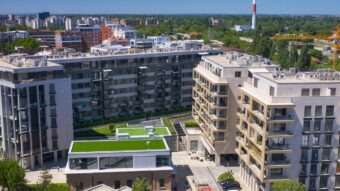
If we could pick just one word to mark the technological progress of the 21st century, a safe choice would be the adjective smart. We wear smartwatches, use smartphones, and watch programs on smart TVs. Even objects such as chairs, lamps and glasses have become “smart” in modern society. It would seem that the general use of this designation has somewhat ruined the initial idea, so today, we can rightly question its true meaning. In the world of technology, we would call a device “smart” if it has some form of “intelligence”, i.e. if it can “think” in a way.
The same goes for smart homes that provide more than just remote control of appliances. These intelligent systems provide comfort and security at all times. The path to comfortable and safe living The concept of smart homes is well known in the West, while only a small number of people in Serbia are familiar with the advantages of this new way of living. As explained by our interlocutor Vladimir Šijačić, Director of the Pametan stan company and ABB’s distributor and system integrator, smart buildings “think” following predetermined rules set by the system installer or the users themselves.
Therefore, this is not about artificial intelligence making autonomous decisions. You can relax; smart houses will not take over control of your lives. A smart building, whether a house, apartment or business space, is designed to make life easier for its user and more cost-effective. Automated control of electrical installations, such as lighting, blinds, motorised shades, heating and cooling, and control over household devices, will ensure their optimum use and provide us with easy living without the need to think about too many details. Furthermore, all appliances in smart buildings are properly turned off, thereby increasing the safety of living. This knowledge ensures we can sleep tight. Whether at work or at home, our day often consists of routine tasks that do not vary much daily.
In focus:
Going to work at a certain time means locking the house, adjusting the heating or cooling temperature and turning the alarm system on. All these actions can be automated to save time and ensure they have been done. Šijačić explains that for each of these situations, we can have a “scenario” that will initiate many actions on the electrical installations and devices in the home and thus quickly align the environment with our needs.

“If, for example, you want to watch a movie, you can play the ‘watching a movie’ scenario that will automatically darken the room, turn on the TV, offer you a list of movies and perform other actions to provide you with an ideal environment for watching a movie”, explains Šijačić, adding that the same is true for other scenarios, such as “going to sleep”, “travelling”, etc.
The point of smart home systems is to group a number of actions, so we do not need to walk from switch to switch, pressing them, or to avoid having a dozen remote controls on our table, which is certainly not the most practical solution.
Saving every kilowatt
The increase in fuel and electricity prices during the past few months has made us check increasingly often whether we have turned off all lights and household appliances not actively in use. With smart homes, we do not need to worry about this anymore. In fact, we can be certain the appliances have been on only when electricity use was lowest. Let us say that during the heating season we turn the heating on at four in the morning, as the electricity is the cheapest then, but nobody really likes the idea of getting up from their warm bed so early. Smart homes have a solution for this. The heating will be programmed to turn on at the crack of dawn, providing us with comfort and maximum savings.
According to Vladimir Šijačić, energy savings are highest in heating and cooling buildings and lowest in lighting, as the market is dominated by LED lights that do not use a lot of power. However, regarding exterior lighting, we need not worry about the time for turning the lights on, as a smart home is equipped with a timer that precisely “knows” when the sun sets and when additional light is needed. Taking everything into consideration, we should be aware that a smart home can save up to 40 percent of heating and electrical power, notes Šijačić.
Prepared by: Milena Maglovski
Read the story in the new issue of the Energy portal Magazine Waste Management.



